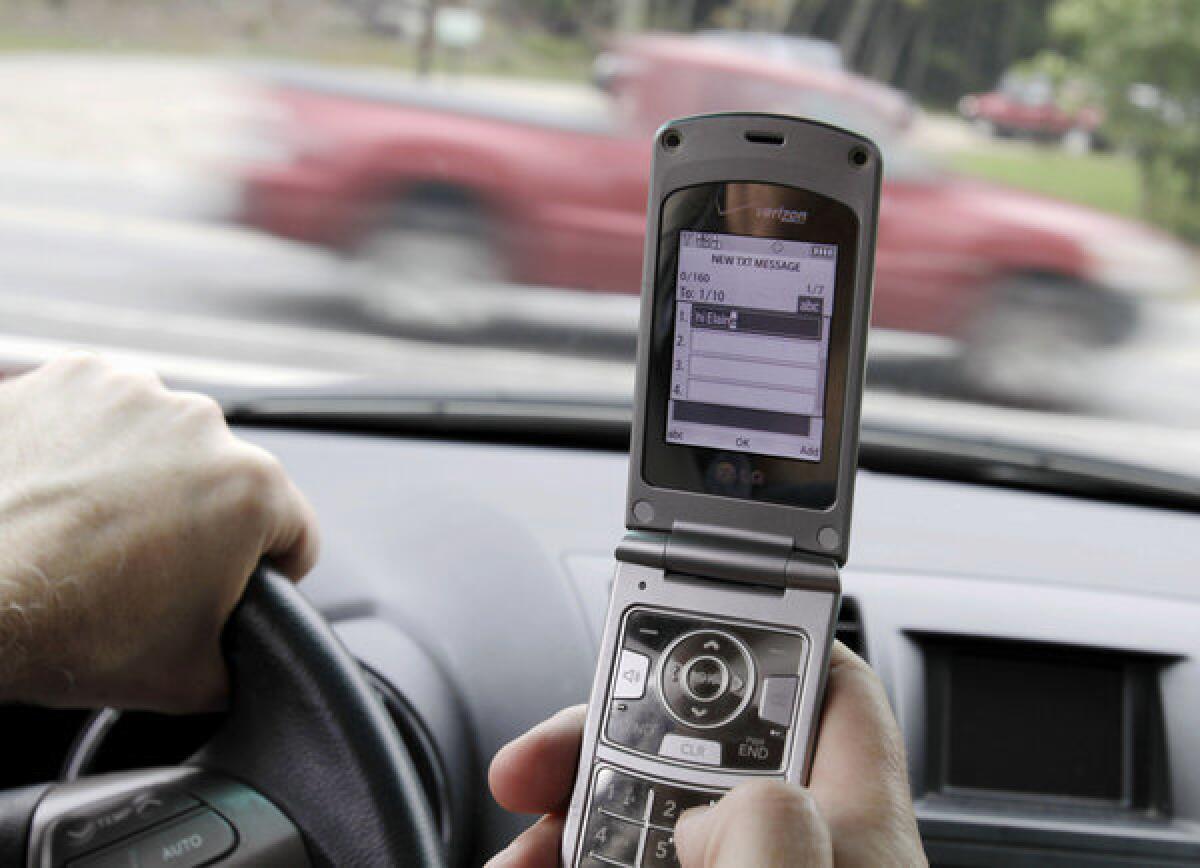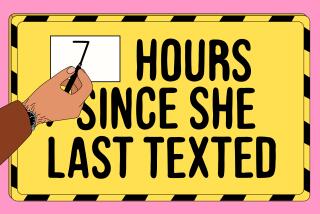Males downplay risk of texting and driving, study says

- Share via
Do you think its OK to text and drive because you’re a great driver? If so, chances are you’re a guy.
A new study published in the International Journal of Sustainable Strategic Management found that 4 out of 5 college students texted while driving, and that males in particular were more likely to downplay the dangers of distracted driving, because they believed they were skilled drivers.
“While male respondents widely agree that texting while driving is dangerous they also believe that they are better at texting while driving than other drivers,” wrote study authors Garold Lantz and Sandra Loeb.
The authors, who are both marketing professors at Kings College, in Wilkes Barre, Pa., surveyed 120 male and female students on their texting habits, as well as their views of the practice.
The purpose of the study was to determine whether there was a connection between a person’s impulsiveness and their likelihood to text while driving. The authors were surprised by what they found.
On average, the students sent 82 text messages a day, with females sending more than that and males sending fewer on average. Females appeared to be more impulsive about texting, but that did not carry over to texting while driving, authors said.
“Females who were more impulsive were not more likely to text while driving,” they wrote. “This is probably due to the finding that females recognized the dangerousness of texting while driving more than males.”
Males, according to he study authors, reported texting less frequently, and less impulsively, but “showed less awareness (or less appreciation) of the dangerousness of texting while driving.”
Despite that difference in attitude, males and females appeared to be equally likely to text while driving in general, the authors wrote.
Prior studies have demonstrated that texting while driving can slow reaction times even more than drinking and driving. And while most people believe they are good at multitasking, other studies suggest fewer than 3% of the population can effectively perform more than one task at a time.
Study authors noted that their research was limited by the small sample size, however, they said it was among the first papers to try to identify the motivations for texting while driving.
Despite numerous state laws forbidding texting while driving, and other forms of distracted driving, the authors wrote that legislation seems to have had minimal impact on people’s habits.
For this reason, the authors said further research was necessary in order to implement effective programs that would discourage people from texting while driving.
“Simply outlawing the behavior is insufficient to persuade people not to do it,” authors wrote.
ALSO:
Cirrus-ly? MIT scientists make icy Martian clouds on Earth
What exactly is a Higgs boson? An explanation for the rest of us
U.S. Antarctic research victim of shutdown; losses are irreplaceable







